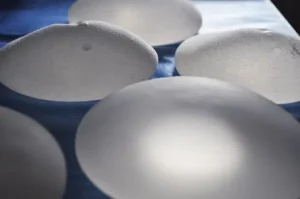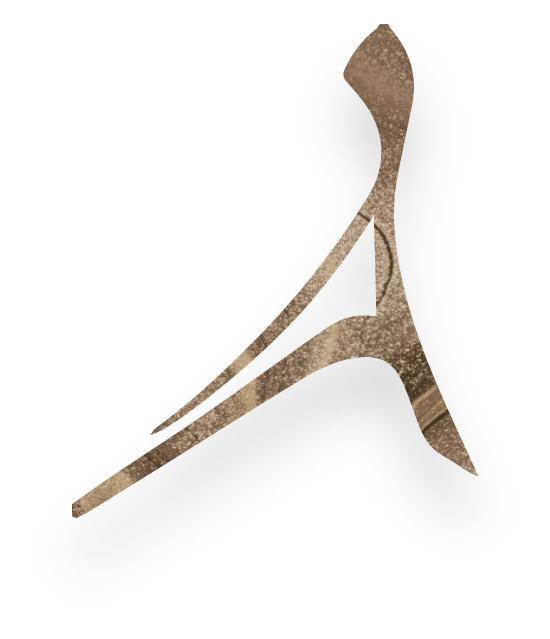Offered at our convenient location in Newport Beach, CA

Breast implant illness (BII) is a rare, non-specified cluster of symptoms associated with an adverse reaction to silicone breast implants. It is sometimes referred to as autoimmune inflammatory syndrome induced by adjuvants (ASIA). In immunology, the term “adjuvant” is given to a substance that can trigger or even accelerate an immune response. Around half of the women who suffer from BII experience breast pain, tenderness, and/or burning sensations. They may also develop changes in breast shape, symmetry, firmness, and/or size. (1) In some cases, it can cause significant discomfort and distress. Therefore, it should be addressed by a knowledgeable medical expert at the earliest convenience.
Dr. Ali Tehrani can resolve these symptoms with a revision breast augmentation at Tehrani Plastic Surgery. Dr. Tehrani is a board-certified plastic and reconstructive surgeon who offers a wide range of cosmetic procedures to help men and women reach their aesthetic goals. By switching out your current implants and exchanging them for new ones, or by removing them entirely, you can see relief from the symptoms of BII.
With locations across Southern California in Apple Valley, Palm Springs, and San Diego, prospective patients can call (657) 215-3826 to contact our offices or fill out a simple inquiry form for further details.
About Breast Implant Illness
There are a wide range of symptoms associated with BII, which include:
- Chronic fatigue
- Headaches
- Memory/concentration issues
- Weight fluctuation
- Depression and anxiety
- Unexplained respiratory problems
- Chronic muscle and joint pain
- Dry mouth and dry eyes
- Sleep disturbance/insomnia
- Unexplained skin rashes
- Gastrointestinal problems
Do We Know What Causes BII?
In some patients, BII occurs after implant rupture, though this is not always the case. Currently, there is no single diagnostic test to screen for BII. Therefore, it is not yet an officially recognized medical diagnosis. However, there is substantial evidence to prove its existence, as exemplified by numerous studies, physician reports, and patient experiences throughout the years.
Although some research has set out to discover a single cause, none has so far been discovered, though there are some leading theories. According to some experts, certain people have a predisposed immune response to the materials used to construct breast implants. (2) Other experts believe BII is caused by biofilm, a complex microbiome of organisms that cause healthcare-associated infections. Some studies have shown that biofilm-related conditions are responsible for an estimated 1.7 million infections in hospitals every year. (3)(4)
BIA-ALCL
Although separate from BII, another illness you may have heard about is breast implant-associated anaplastic large cell lymphoma (BIA-ALCL). This is a rare type of lymphoma (cancer of the immune system) found in patients with textured implants. In a small percentage of patients with breast implants, this disease can develop in the scar tissue capsule and fluid surrounding the implant. Symptoms include:
- Fluid buildup/swelling
- Breast pain
Less common symptoms:
- Enlarged lymph nodes
- Skin rash
- Fever
- Weight loss
Patients should speak to their physician if they are experiencing any of these symptoms. Your doctor may order ultrasound or MRI imaging to further investigate, and formulate an effective treatment plan moving forward.
Benefits of Breast Implant Removal
Patients may choose to have their implants removed or “explanted.” This may be for medical reasons – such as cases of BII – or comfort and aesthetic purposes. Implant removal can:
- Relieve the symptoms associated with breast implant illness
- Alleviate muscle aches and pain due to larger breasts
- Address tissue changes and asymmetry caused by implants
- Enable clearer mammogram interpretation
- Provide relief for patients who no longer want an implant
- Boost body confidence
Get comprehensive medical and cosmetic solutions for your breast implant issues with Dr. Tehrani. Contact our office in Newport Beach at (657) 215-3826, or connect with us regarding your inquiry online.
Candidates
Candidates for breast implant removal or implant revision should want to address problems they are experiencing related to their old implants surgically. Apart from BII symptoms, those wishing to undergo this kind of procedure should be in good general health and free from any severe health conditions that could affect their outcomes. All candidates should have realistic expectations of what implant removal surgery can achieve for their specific situation. The best way to find out the right course of action for your circumstances is to arrange a personal consultation with Dr. Tehrani.
Personal Consultation

When you speak to Dr. Tehrani about your breast implants and the current symptoms you are experiencing, we want you to feel at ease. You will have the chance to speak frankly about your implants and how they affect your quality of life in a one-on-one consultation. If you are a new patient, Dr. Tehrani may ask you to fill out an intake form and give a brief overview of your medical history. He will then examine your breasts and note if there is any discomfort or swelling. If you are experiencing symptoms associated with BII, Dr. Tehrani will inquire further about each of them. If he determines you are a good candidate for explant surgery or a revision implant procedure, we will schedule a date for your surgery.
Preparing for Breast Surgery
After your consultation with Dr. Tehrani, you will be given a personalized list of preparatory steps to take before your procedure. These may include:
- Providing us with a list of your current medications
- Discontinuing blood-thinning medications and NSAIDs such as ibuprofen
- Stopping smoking, as blood flow may be affected, inhibiting recovery
- Asking a person you trust to drive you home (the anesthesia will need time to wear off)
- Arranging 1-2 weeks off from work with your employer to recover well
- Fasting, starting at midnight before your surgery
- Picking up medications prescribed by Dr. Tehrani before your surgery date
Implant Removal Procedure

In any breast procedure, Dr. Tehrani makes surgical markings beforehand to map incision points. We will administer general anesthesia then begin the pre-planned surgery you discussed at length at your consultation. Special care is taken to limit additional scarring. This can be done by following the existing incision scars from your original breast augmentation. Dr. Tehrani will then carefully remove your old implants, shaping and sparing the remaining tissue and contouring it as required. If you’re receiving new implants, Dr. Tehrani will place them in the existing breast pocket from your previous implants. He will then suture the area shut and may wrap it in a compression bandage to keep your chest secure and able to heal well.
Recovery and Results After Breast Implant Surgery
In the days and weeks after your implant exchange or removal, you may feel any of the following temporary symptoms:
- Tissue Swelling
- Breast Tenderness
- Surface Bruising
- Skin Discoloration
To manage any discomfort, please take medication as directed by Dr. Tehrani. Your symptoms will dissipate after the first few weeks, but full recovery usually takes around 6 weeks. After 1-2 weeks, you can return to most daily duties, but should avoid strenuous activities such as going to the gym and lifting heavy loads for six weeks. To minimize movement-related discomfort and positions that could hinder the recovery process, Dr. Tehrani advises all patients to sleep on their back or side until fully healed. We will schedule your follow-up appointments to assess your progress in the weeks after your surgery date.
Feel free to contact our offices at (657) 215-3826 to find out more information about BII, breast implant removal, and implant revision. Alternatively, you can fill out our simple and quick contact form. We will be in touch with you regarding your inquiry as soon as possible.
Cost of Breast Implant Removal & Revision
Every patient has a unique set of symptoms regarding breast implant illness. Similarly, each patient’s original breast augmentation is different from the next. Because of this, the cost to address implant-related illness and remove or exchange your implants will vary. Please use your personal consultation with Dr. Tehrani to find out more about how much each procedure will be. Click here for financing options available at Tehrani Plastic Surgery.
Stay informed about aesthetic surgery options, non-surgical beauty treatments and more by reading Dr. Tehrani’s blog! You can also follow us and see real patients’ results on our Facebook and Instagram!
FAQ
Am I Tired And Depressed Because Of My Breast Implants?
Depression and anxiety accompanied by fatigue may be symptoms of breast implant illness, although these are often accompanied by other symptoms such as muscle and joint pain and “brain fog.” This condition can occur in a small number of patients that may be due to an abnormal immune response the body has to your implants. All patients who suspect breast implant illness should seek a medical opinion from a specialist physician.
Is Breast Implant Illness A Serious Medical Condition?
Currently, breast implant illness (BII) is not a diagnosable condition because of the difficulty of assessing the cluster of symptoms associated with it. Despite this, BII can cause significant discomfort and distress in patients. If you believe your breast implants are negatively affecting your health, reach out to your physician immediately. Your doctor may recommend implant removal, or implant exchange which can be performed by a licensed plastic surgeon.
How Can I Change My Breast Implant Type?
A licensed plastic and reconstructive surgeon can change your implants in a revision breast augmentation procedure. This type of surgery can be performed along the same scars as your original breast augmentation to limit any new scarring and optimize your new aesthetic.
References
- Cohen Tervaert, J., Mohazab, N., Redmond, D., van Eeden, C., & Osman, M. (2021). Breast implant illness: scientific evidence of its existence. Expert Review of Clinical Immunology. https://doi.org/10.1080/1744666x.2022.2010546
- What Is Breast Implant Illness? (2020, October 29). Breastcancer.org. https://www.breastcancer.org/treatment/surgery/reconstruction/types/implants/special-report/breast-implant-illness#:~:text=A%20leading%20theory%2C%20according%20to
- Swanson, E. (2020). Breast Implant Illness, Biofilm, and the Role of Capsulectomy. Plastic and Reconstructive Surgery Global Open, 8(7), e2999. https://doi.org/10.1097/GOX.0000000000002999n
- Bryers, J. D. (2008). Medical biofilms. Biotechnology and Bioengineering, 100(1), 1–18. https://doi.org/10.1002/bit.21838

